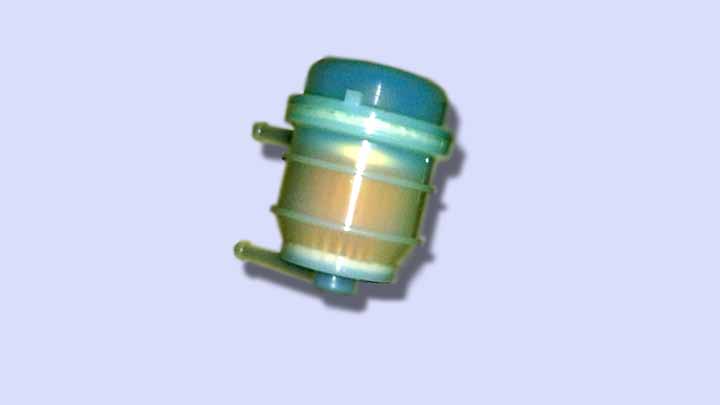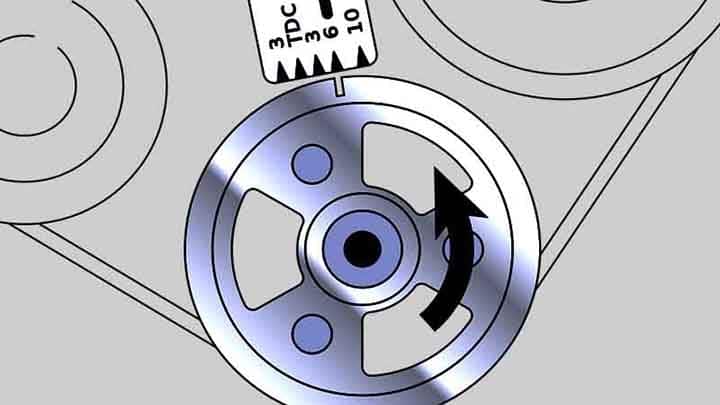
When you put your car key in the ignition of your vehicle and twist it in there, you may notice the car engine will crank but not start. What do you think this means? This is actually a rare situation, but it does happen. Basically, in this situation, there is not enough power left to energize the fuel injectors and ignition system after you’ve successfully cranked the vehicle. As a result, the engine is not able to run even though it has been cranked.
This can certainly be a frustrating situation for anyone because they may think their engine is the problem. In actuality, the engine is usually fine in these situations. The cause of the problem can be blamed on another component which is indirectly associated with the engine. Only a licensed mechanic can provide an accurate diagnosis as to the cause of this problem.
7 Common Causes
There is more than one possible cause of a car engine that cranks but doesn’t start. Some of the problems can be fixed easily while others may require you to replace components. If you can learn about the causes beforehand, then you will know what to expect when you take your vehicle to the mechanic.
Below are the top 7 causes of a car engine that only cranks but does not start.
1) Battery Problems
Do you have a slow cranking engine? If so, then you may have low battery power. Either that or your battery terminals may be covered with corrosion. You don’t want this to happen because corrosion can interfere with the transmission of the battery power. Check the terminals to make sure they’re not loose because that may be the problem too. Fortunately, it is simple to remedy this problem. Just tighten the terminals and clean away the corrosion. The worst-case scenario is that you replace the battery for $100 or so.
2) Computer Sensor Issue
There are computer sensors all throughout your vehicle which send information to the engine control module. For the engine, the two most vital sensors are the crankshaft position sensor and the camshaft position sensor. The engine control module depends on these sensors to provide it with accurate information. If one or both sensors get damaged or worn out, then it will ultimately affect the engine’s ability to start after it has been cranked.
3) Fuel Problems
Fuel problems can cause an engine to crank but not run. Perhaps you have little fuel in your gas tank or contaminated fuel. Sometimes your fuel filter may be damaged or unable to filter the contaminants out of the fuel before it reaches the engine. Even putting the wrong fuel in your gas tank can cause an engine not to start.
4) Faulty Security System
Some vehicles have innovative security systems built into them. This system may stop the ignition system from allowing the engine to start. If you’re unable to bypass the security system with your credentials or key, then it means you have a faulty security system. The only thing you can do here is to call the security company and have them send someone to fix the system.
5) Bad Starter Motor
The job of the starter motor is to produce enough amps to power the fuel injectors and ignition system of the vehicle. If your engine cranks but then you notice several strange sounds occurring afterward, this can be attributed to a bad starter motor. It means your fuel injectors and/or ignition system is unable to be powered adequately by the starter motor. Furthermore, your engine may stop cranking sooner or later if you don’t fix the problem.
Read also:
6) Low Compression
A lack of compression in the cylinders will cause the engine not to start, even if there is an engine crank. There are several reasons for this problem to occur. Perhaps the timing belt has snapped or broke, resulting in the camshaft not being able to do its job properly. If you have an overheated engine from low compression, that will make it nearly impossible to start the engine too. Only a licensed mechanic will be able to pinpoint the exact reason for the low compression.
7) Weak Spark / Bad Ignition Systems
The air and fuel mixture in the internal combustion chamber needs a strong enough spark to ignite it. If there is a weak spark or no spark at all, then ignition is not going to happen. Check the spark plugs, ignition circuit, ignition switch, ignition module, and the crank position sensor. Anyone of these components could be the cause of a non-starting engine. If you find that one of them does not work, simply have it replaced and then try again. The spark should be good this time.


